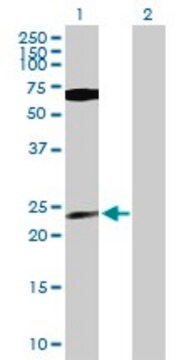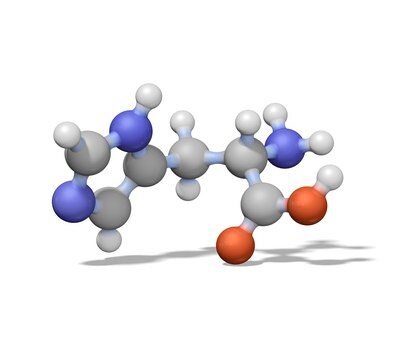P7607
Monoclonal Anti-Protein Phosphatase 1α antibody produced in mouse
clone PPI-377, ascites fluid
Sinónimos:
Anti-PP1α
About This Item
Productos recomendados
biological source
mouse
conjugate
unconjugated
antibody form
ascites fluid
antibody product type
primary antibodies
clone
PPI-377, monoclonal
mol wt
antigen 37.5 kDa
contains
15 mM sodium azide
species reactivity
rabbit, rat, bovine, human, mouse, monkey
technique(s)
immunocytochemistry: suitable
microarray: suitable
western blot: 1:500 using mouse fibroblasts cell extract
isotype
IgG2b
UniProt accession no.
shipped in
dry ice
storage temp.
−20°C
target post-translational modification
unmodified
Gene Information
human ... PPP1CA(5499)
mouse ... Ppp1ca(19045)
rat ... Ppp1ca(24668)
General description
Monoclonal Anti-Protein Phosphatase 1α specifically recognizes an epitope within the catalytic subunit of PP1α isoform (37.5 kDa).
Specificity
Immunogen
Application
Western Blotting (1 paper)
Disclaimer
¿No encuentra el producto adecuado?
Pruebe nuestro Herramienta de selección de productos.
Storage Class
10 - Combustible liquids
wgk_germany
nwg
flash_point_f
Not applicable
flash_point_c
Not applicable
Elija entre una de las versiones más recientes:
Certificados de análisis (COA)
¿No ve la versión correcta?
Si necesita una versión concreta, puede buscar un certificado específico por el número de lote.
¿Ya tiene este producto?
Encuentre la documentación para los productos que ha comprado recientemente en la Biblioteca de documentos.
Nuestro equipo de científicos tiene experiencia en todas las áreas de investigación: Ciencias de la vida, Ciencia de los materiales, Síntesis química, Cromatografía, Analítica y muchas otras.
Póngase en contacto con el Servicio técnico








